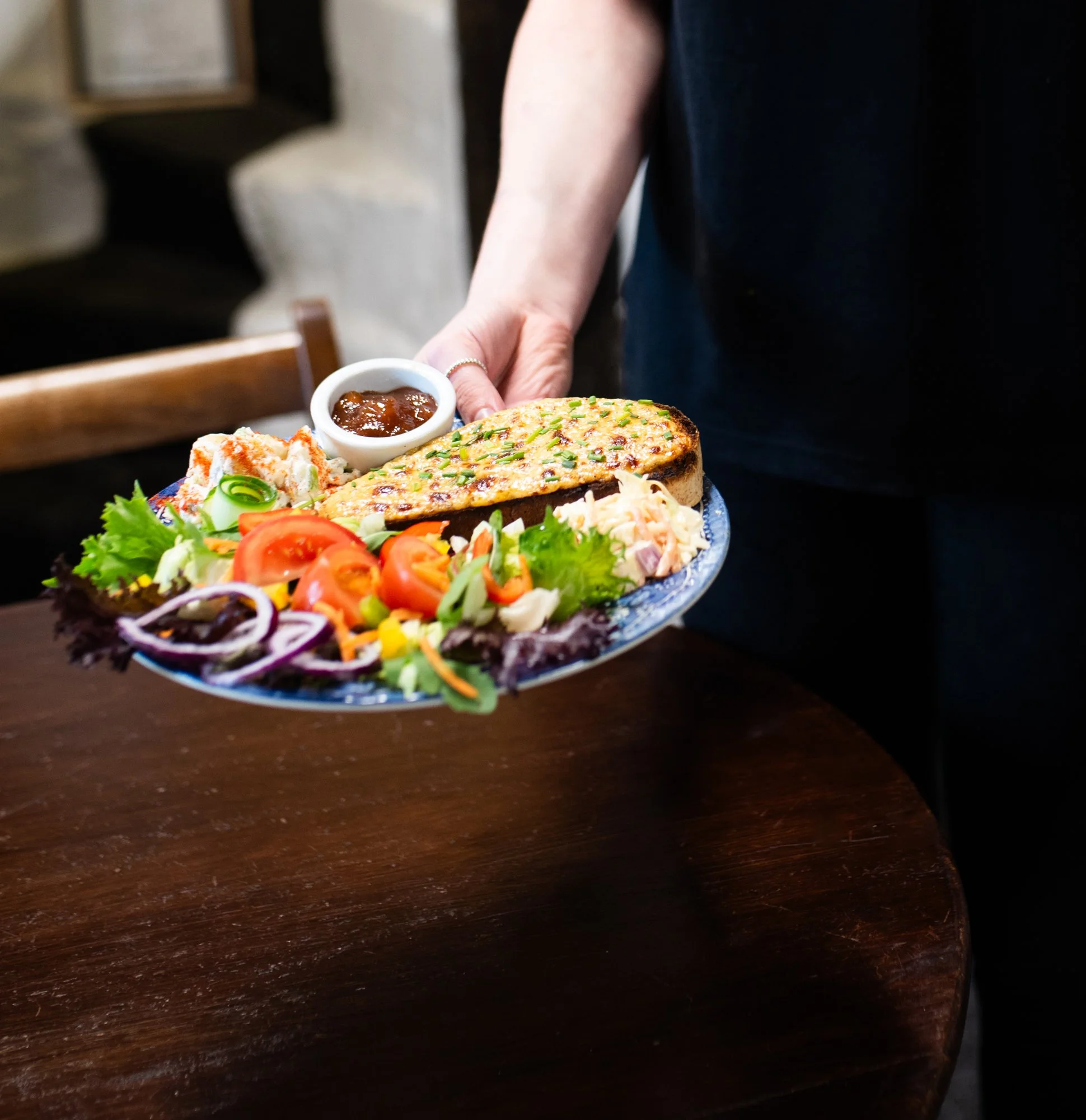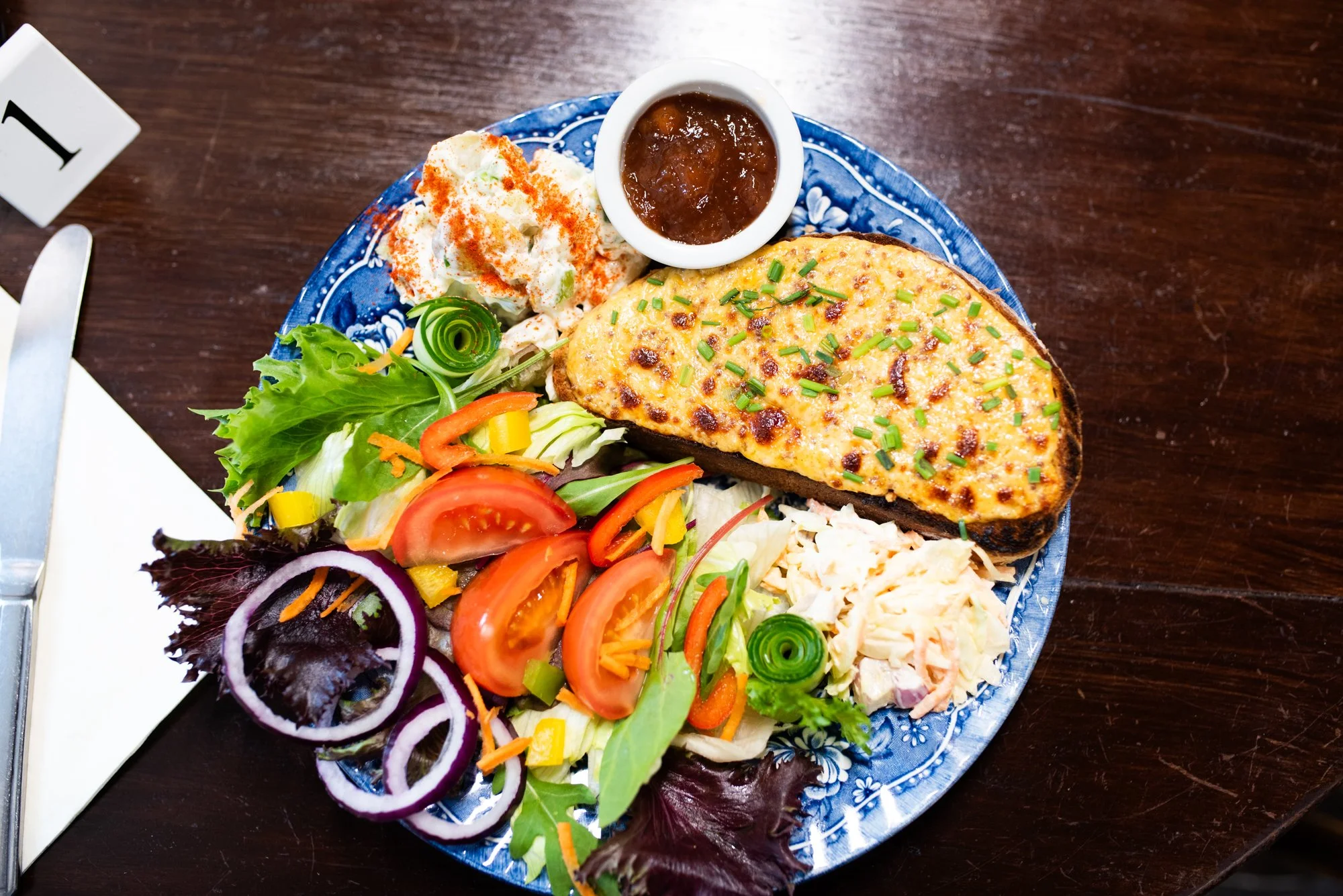Welsh Rarebit: A Tasty Morsel of British Culinary History
In the pantheon of classic British cuisine, few dishes evoke as much curiosity and charm as Welsh rarebit. At its heart, the dish is beautifully simple: cheese on toast. But, as with most time-honoured foods, the layers of history, myth, and regional variations make it a subject worth savouring.
The Mysterious Origins
Despite its name, Welsh rarebit doesn’t have a lot to do with rabbits. The original term was "Welsh rabbit", with "rarebit" emerging later, perhaps in an effort to correct or refine the somewhat confusing moniker. Why "rabbit"? Theories abound. Some say it was an English term of derision, hinting that the Welsh, either due to poverty or ineptitude at hunting, had to make do with cheese instead of meat. Others suggest it's simply a playful twist on words, much like "toad in the hole" (which contains no toads) or "spotted dick" (which is safe for all ages).
A Journey Through Time
The first recorded mention of this dish can be traced back to the 1725 publication "A Compleat Housewife" by Eliza Smith. But its origins are undoubtedly older. Cheese, after all, has been a staple in the Welsh diet since time immemorial, and melting it over bread is a practice almost as ancient.
By the 18th century, variations of the dish could be found in England and Scotland. However, it was Wales that would forever lay claim to the dish, perhaps due to its reliance on cheese during meat-scarce periods.
A Recipe that Evolves
Traditional Welsh rarebit is far from mere cheese melted on toast. The cheese (often a mature Cheddar) is combined with ale or beer, mustard, and sometimes a dash of Worcestershire sauce, then melted to a smooth consistency. This mixture is then poured over toasted bread and grilled until bubbly and golden.
Over the years, the dish has welcomed various additions and variations. Some recipes include an egg to make the topping richer. Others incorporate spices, leeks or tomatoes. St. David's Day, the national day of Wales, often sees an upsurge in more traditional versions of the dish, celebrating the rich culinary and cultural heritage of the region.
More Than Just Food
Welsh rarebit has also made its mark on pop culture. It has been referenced in literary works, depicted in cartoons, and has even been the subject of humour and ribbing. There’s something inherently funny about a grand-sounding dish that, in essence, is humble cheese toast.
Furthermore, Welsh rarebit has become an integral part of British supper culture. It's the kind of dish that’s served in the evenings, accompanied by a pint of ale, offering comfort and warmth.
In Conclusion
Welsh rarebit, while deceptively simple, carries with it a rich tapestry of history, regional pride, and culinary experimentation. It stands as a testament to how a humble dish can transcend its basic ingredients to become a symbol of a nation's culture and history. Whether you enjoy it as a quick snack, a hearty supper, or a link to the past, Welsh rarebit is a delicious piece of Britain's gastronomic legacy.


